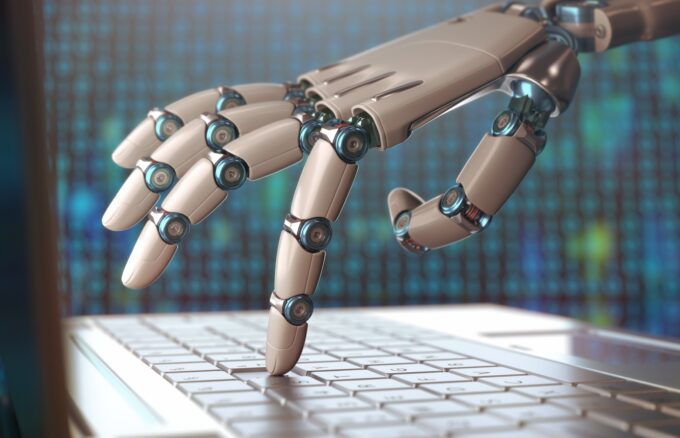
The recently published Accenture study underpins the major changes that businesses and society are facing. According to the study, more than four out of five respondents (84 percent) believe that technology has enabled companies to play a significant role in people's daily lives. Among other things, reference is made here to the growing influence of AI-based voice assistants such as Amazon Alexa, which are already integrated into many products and are thus also gaining relevance in more and more situations in daily life.
However, this presents companies with new challenges in the tension between future growth opportunities and greater social responsibility resulting from the ubiquity of technology. As technology becomes more seamlessly integrated into our personal and professional lives, it becomes increasingly important for companies to redefine their relationship with customers and business partners and to focus on the responsible use of technology.
"Information technology is now an integral part of our lives and is also changing work and society," says Marc Zollinger, Head of Technology at Accenture Switzerland. "The greater the influence of digital innovations on our everyday lives, the more important it becomes that the providers of corresponding services and technologies take responsibility. On the one hand, this means that companies have to gain the customer's trust and stand up for transparency. On the other hand, customers must become accustomed to sharing personal information if they want to derive maximum benefit from digital services."
The Technology Vision also describes how the relationship between companies and consumers is changing from a one-way street to a highway on which data is exchanged in both directions. Whereas consumers were previously mainly passive users of products and services, they now contribute to their functioning and continuous development with their data. This development enables companies to engage in "integrated innovation", but requires a trusting, partnership-based relationship between the players that goes far beyond the purely functional value of products. Shared goals and values will shape the relationship between companies and individual customers to a much greater extent in the future. This requires the right management in the companies.
The five technology trends for business
To meet their social responsibilities and build new partnerships in the digital ecosystem, companies should take these five technology trends in particular to heart:
I. AI for all: advancing artificial intelligence (AI) for business and society.
The better artificial intelligence works, the greater its influence on people's everyday lives. For companies whose business models are increasingly based on AI, this means fulfilling their social responsibility and defining clear rules about what AI can and cannot do.
II. augmented reality: the end of distances
Virtual reality (VR) and augmented reality (AR) are increasingly blurring the boundaries between the real and virtual worlds. These technologies are thus changing the way people live and work and levelling out spatial distances.
III. data accuracy: the importance of trust
The more companies' business models rely on data, the greater a new form of vulnerability becomes: incorrect, manipulated data.
and biased data, leading to erroneous business findings and distorted
decisions with a significant impact on society. The best way for companies to meet this challenge is on two tracks, by paying even more attention to correct data sets and at the same time reducing incentives for manipulation.
IV. Boundless business: partnership on a grand scale
Companies depend on technology-based partnerships across industries to grow, but their own legacy systems are not designed to support such ecosystems of partners. Tomorrow's leading companies will be those that seek and enable partnerships in a big way today, but design their internal systems and processes to do so early.
V. Internet of Thought: Creating Intelligent Environments
Companies have high expectations for intelligent environments created through robotics, AI, and immersive experiences. To bring these intelligent environments to life, companies not only need to educate their employees and build new skills, but also update their enterprise IT.
"With the rapid spread of new technologies, the role of companies is also changing: They are increasingly transforming themselves from pure providers to partners in a comprehensive innovation process, developing new solutions together with customers, employees, research institutions and other companies," Marc Zollinger continues. "Thanks to this networking with a wide range of players and the resulting stronger social anchoring, trust in companies is also growing. In this way, they are laying the foundations for tomorrow's growth."
About Technology Vision
Accenture has been systematically observing and analyzing the development of companies and markets for almost 18 years. In doing so, the consulting firm identifies the technology trends with the greatest disruptive potential. This year, the study is published under the title "Closely Connected to the Customer - How an Intelligent Company is Created". Accenture Labs and Accenture Research are responsible for the study. The current edition is based in part on the expertise of the Technology Vision External Advisory Board. This board brings together more than two dozen decision-makers and entrepreneurs from the private and public sectors, academia, venture capitalists and start-ups. In addition, the Technology Vision team interviewed nearly 100 Accenture executives alongside technology thought leaders and industry experts.









